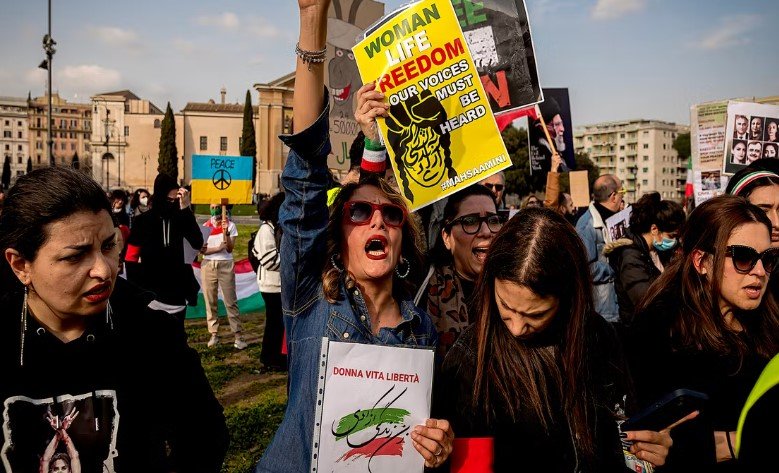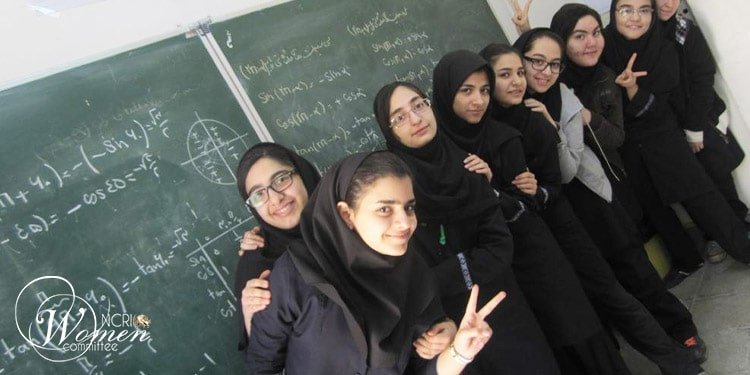Iran is looking into the poisonous gas poisoning of hundreds of schoolgirls.
Published
Parents are requesting online courses because they are terrified to bring their daughters to school.
Since November, about 700 girls have died in Iran from poisonous gas poisoning, which many people believe was done on purpose to shut down their schools.
No girls have perished, but dozens have experienced exhaustion, nausea, dizziness, and respiratory issues.
The deputy health minister stated on Sunday that it was “clear that certain people wanted all schools, especially girls’ schools, to be closed down.”
Later on, he claimed that his comments had been misinterpreted.
The commencement of a criminal inquiry was announced last week by the attorney general. He claimed that the facts at hand only suggested “the probability of unlawful and deliberate activities,” nonetheless.
In the meantime, public annoyance keeps rising.
Parents protested outside the governor’s office in Qom, demanding that the government take action. The first poisoning occurred on November 30 and resulted in the hospitalization of 18 students from the Nour Technical School in the spiritual city of Qom.
Since then, the neighboring province has targeted more than 10 females’ schools.
In the previous week, four schools in the city of Borujerd, in the western province of Lorestan, are said to have poisoned at least 194 girls.
At the Khayyam Girls’ School in Pardis, close to the Iranian capital of Tehran, another 37 girls were poisoned on Tuesday.
The minister of education of the Islamic regime in Iran admitted that the poisoning of the students was intentional.
— Masih Alinejad 🏳️ (@AlinejadMasih) February 26, 2023
The poisoning of school girls is the revenge of the terrorist regime of islamic Republic against the brave women who flagged the mandatory hijab & shook the… https://t.co/kwK3vtLHDs pic.twitter.com/ycddbT0ghA
Before becoming unwell, the poisoned females claimed to have smelled rotten fish or a tangerine.
At least 100 individuals participated in a demonstration outside the Qom governor’s office earlier this month.
“You have to make sure my kids are safe! Two of my daughters are “In a video that was extensively circulated on social media, a parent yelled. Two girls, and the only thing I can do is prevent them from attending school.
This is a battle, a woman exclaimed. “In order to make us stay at home, they are doing this at a girls’ high school in Qom. Girls are encouraged to remain at home.”
Some parents have reported that their kids remained sick for weeks following the poisoning.
Another video from a hospital shows a teenage girl laying confused on a bed, with her mother beside her.
“Please, mothers My child, who is a mother, is in a hospital bed and has weakened limbs “explains the upset mother. “She doesn’t feel anything when I press against her. Don’t send your kids to school, please.
Younes Panahi, deputy health minister, stated during a press conference on Sunday that the girls had been poisoned by chemicals that “are not military grade and are publicly available.”

He continued, “The pupils do not require any invasive therapy, and it is important to keep calm.”
Dr. Panahi’s statement that “certain people obviously wanted all schools to be locked down” seemed to support the government’s theory that the poisonings were planned in advance.
His subsequent denial hinted at disagreements among officials over how to handle the outrage of the public when no suspects had been located.
The poisonings have been especially concentrated in Qom, which is the location of significant Shia Muslim sites and the center of the Islamic Republic’s religious establishment.
The widespread demonstrations that erupted in September following the death in jail of a young Kurdish woman, Mahsa Amini, who was arrested by morality police for reportedly not wearing her hijab “correctly,” have put the ecclesiastical establishment under pressure.
Some Iranians have hypothesized that perhaps the schoolgirls are being poisoned as “payback” for their role in the unrest. Videos of schoolgirls pulling off their headscarves and screaming anti-establishment phrases were widely shared on social media.
Recent pictures of schoolgirls defying the clerical establishment by removing their headscarves went viral.
Some people have theorized that the poisonings are the work of extremists who wish to “imitate” the Taliban in Afghanistan and the militant Islamist group Boko Haram in Nigeria by terrorizing parents into stopping their daughters from attending school.
Former Vice President Mohammad Ali Abtahi posted on Instagram, “Has Boko Haram come to Iran.”
However, the reform-minded legislator issued a warning that “extremists would construe the limits of government and religion in their favor.”
Iran’s officials have historically dismissed criticism of the country’s limitations on women, such as the requirement to wear a headscarf, and instead taken pride in the proportion of women who enroll in universities. College is only a dream for young females if they do not complete their education.
“We are informed by them [officials] that everything is fine after our investigation. But, when my father inquired at my school, they informed him that they were unable to look into the matter because the CCTV had been down for a week “She spoke.
“Then on Sunday, when I was poisoned a second time, the school’s headmaster explained that I was in the hospital because of a heart ailment. I don’t, however, have any heart issues.”





